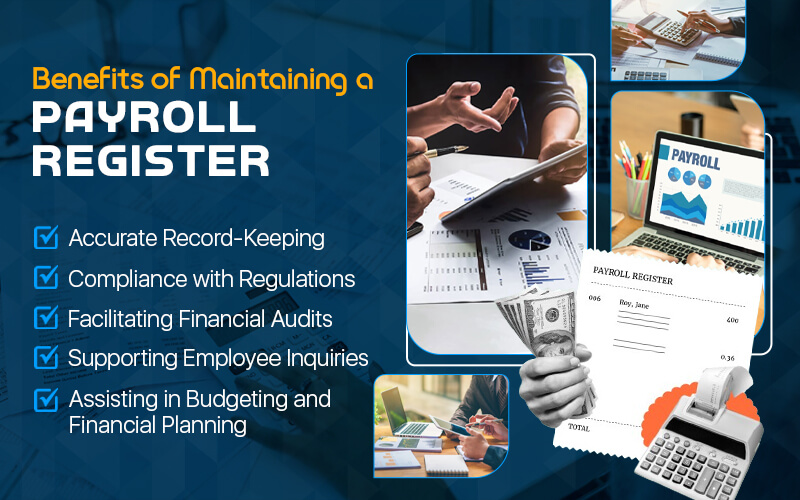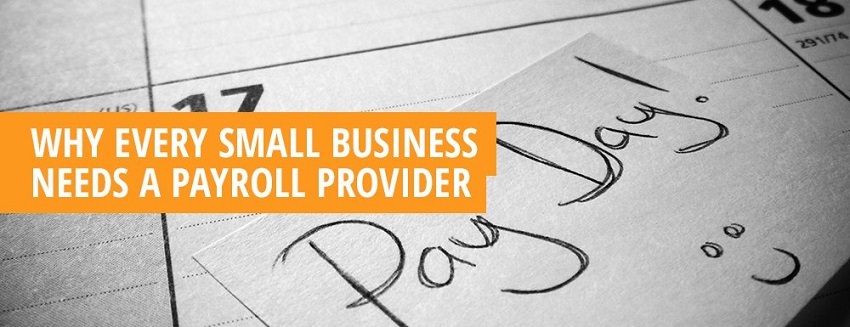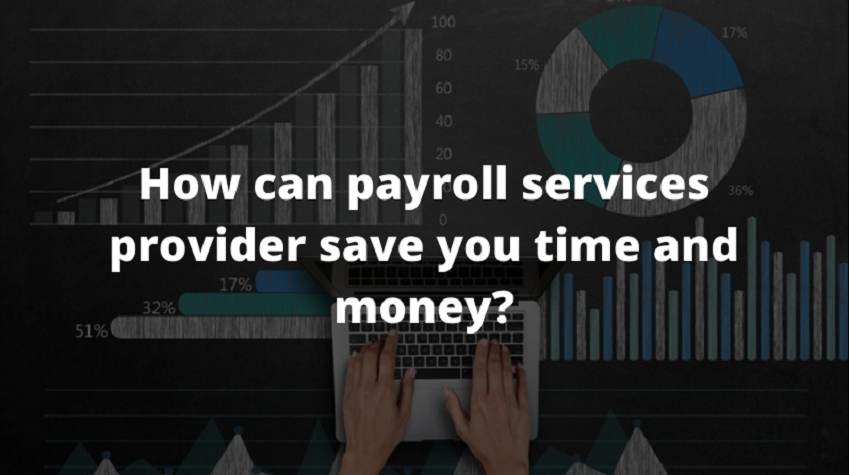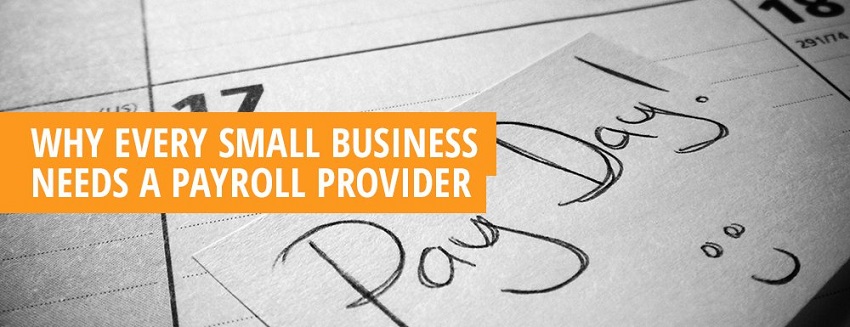What is Payroll Integration?
Payroll integration is necessary for businesses of all sizes. It has always been so. But in today’s fast-paced business landscape, efficient payroll management is crucial.
Payroll integration means a smooth connection between payroll software and other business systems, such as human resources (HR) management, accounting, and time-tracking tools. It streamlines operations, reduces manual errors, and improves overall efficiency in payroll processing.
Understanding Payroll Integration
At its core, payroll integration involves linking various software applications that handle payroll-related tasks. This process includes synchronizing data from HR systems, time and attendance tracking, accounting software, and expense reporting tools. By creating a unified system where data flows smoothly between these applications, businesses can minimize the need for manual data entry and reduce the risk of errors that often accompany disjointed systems.
Payroll integration automates the payroll process to some extent, meaning information like hours worked, overtime, leave taken, and employee benefits can be automatically updated in the payroll system without manual input. It saves time and ensures that calculations are accurate and compliant with regulatory requirements.
Benefits of Payroll Integration
- Improved Accuracy:One of the most significant advantages of payroll integration is improved accuracy in payroll calculations. By automating data transfers between systems, businesses can decrease the chances of human error, which is possible with manual data entry. For example, integrating time-tracking software with payroll ensures that employee hours are recorded accurately.
- Time Savings:Payroll integration significantly reduces the administrative burden on HR and finance teams. With automated processes, employees can focus on more strategic initiatives rather than spending hours on manual payroll tasks. This efficiency is especially beneficial during peak payroll periods when accuracy and speed are paramount.
- Real-Time Data Access:Integrated payroll systems give access to real-time data, which is crucial for making informed decisions. Businesses can analyze labor costs, track trends, and adjust staffing levels based on accurate information. This capability allows organizations to respond quickly to changing business needs and optimize their workforce accordingly.
- Improved Compliance:Keeping up with ever-changing tax regulations and labor laws can be challenging. Payroll integration helps maintain compliance by automatically updating tax rates and generating necessary compliance reports. This proactive approach minimizes the risk of penalties associated with non-compliance.
- Enhanced Employee Experience:A smooth payroll process contributes to higher employee satisfaction. Integrated systems ensure that employees are paid accurately and on time, reducing frustration related to payment delays or errors. Additionally, easy access to pay stubs and tax documents through integrated platforms improves transparency and trust between employees and management.
Common Challenges in Payroll Integration
While the benefits of payroll integration are clear, implementing such systems can present challenges, such as:
- Compatibility Issues:Different software vendors may have different capabilities when it comes to integration. Organizations must ensure that their chosen payroll provider can seamlessly connect with existing HR and accounting systems. In some cases, businesses may need to invest in custom solutions or APIs to facilitate integration.
- Data Security Risks:Integrating multiple systems can pose security risks if poorly managed. Businesses must prioritize data protection by implementing strong security measures to safeguard sensitive employee information during data transfers.
- Initial Setup Costs: The upfront investment required for integrating payroll systems can be a barrier for some organizations. However, many businesses find that the long-term savings in time and reduced errors outweigh these initial costs.
Best Practices for Successful Payroll Integration
To maximize the benefits of payroll integration while minimizing potential challenges, organizations should consider the following best practices:
- Choose Compatible Software:When selecting payroll software, prioritize solutions known for their robust integration capabilities with other business applications like HRIS or accounting software.
- Conduct Thorough Testing:Before fully implementing an integrated system, conduct extensive testing to identify any potential issues or compatibility problems. This step ensures a smooth transition and helps avoid disruptions during regular payroll processing.
- Train Staff:Ensure that HR and finance teams are properly trained on how to use integrated systems effectively. Familiarity with new processes will enhance efficiency and reduce errors.
- Regularly Review Systems:As technology evolves, regularly review your integrated systems to ensure they continue to meet your business needs. Stay updated on new features or enhancements offered by your software providers.
Conclusion
Payroll integration is an important part of today’s business operations, as it boosts efficiency, accuracy, and compliance in payroll processing. By connecting different software applications involved in employee data management, companies can streamline their workflows and reduce potential manual errors associated with traditional payroll methods.
As businesses continue to evolve in an increasingly digital landscape, investing in effective payroll integration will be essential for maintaining operational excellence and fostering a positive employee experience.
What is a Payroll Check?
A payroll check is a form of payment issued by an employer to an employee for work performed during a specific pay period. Payroll checks or paychecks are an important part of the relationship between employer and employee. It reflects compensation for the employee’s effort, time, and contributions to the organization.
In this blog post, we will delve into what a payroll check entails, its importance, and how it functions as part of an organization’s payroll system.
Understanding the Payroll Check
A payroll check is essentially a document issued by the employer. It authorizes a bank to release a certain amount of funds to the employee.
While it has been a paper check employees could cash or deposit, with time, payroll checks have evolved, and many employers now use direct deposit, where funds are electronically transferred to an employee’s bank account. However, the core concept of compensating employees for their work remains the same, regardless of whether the payment is issued via a physical check, direct deposit, or another method.
Payroll checks typically contain several key components:
- Gross Pay: The total income before any deductions, based on the employee’s salary or hourly wage.
- Deductions: These may include federal and state taxes, Social Security, Medicare, health insurance premiums, retirement contributions, and any other applicable items.
- Net Pay: The final amount received by the employee after all deductions are subtracted from the gross pay. It is also known as “take-home pay.”
The Payroll Process
Issuing a payroll check involves several steps that make sure employees receive accurate and timely payments. Here is a closer look at how payroll is typically managed:
- Recording Work Hours: Employees record their work hours, either manually or through a time-tracking system. For salaried employees, hours may not be recorded if they receive a set amount each pay period.
- Calculating Gross Pay: For hourly employees, gross pay is calculated by multiplying the number of hours worked by the hourly wage. For salaried employees, gross pay remains constant unless bonuses or other adjustments apply.
- Applying Deductions: After determining gross pay, the employer calculates deductions, which include federal, state, and local income taxes, as well as deductions for Social Security, Medicare, and any other withholdings.
- Generating the Payroll Check: Once net pay has been calculated, the employer issues the payroll check, either as a physical document or through direct deposit.
- Providing Pay Stubs: Employers often provide a pay stub, which details the breakdown of earnings and deductions. Pay stubs are crucial for transparency, allowing employees to see exactly how their pay was calculated.
Types of Payroll Checks
Payroll checks can be issued in several forms, each with its own characteristics and benefits:
- Paper Payroll Check: The traditional paper check is still used by some businesses, particularly small businesses or employers with temporary or part-time workers. Employees can cash these checks or deposit them at their bank.
- Direct Deposit: Direct deposit is the most common payroll method today. It eliminates the need for physical checks by directly transferring funds into an employee’s bank account. This method is fast and secure and reduces the risk of lost or stolen checks.
- Payroll Debit Cards: Some employers offer payroll debit cards, which are preloaded with the employee’s earnings. This is especially useful for employees who do not have a bank account. However, these cards may have fees associated with them, so it’s important for employees to understand any charges.
- Electronic Checks (E-Checks): An e-check functions like a regular check but is processed electronically. E-checks are becoming increasingly popular as they combine the convenience of digital payment with the structure of a traditional check.
Importance of Payroll Checks
Payroll checks are critical not only to employees but also to the organization itself. Here’s why payroll checks are so important:
- Employee Satisfaction: Prompt, accurate payment contributes significantly to employee satisfaction. Payroll checks reflect an employer’s commitment to valuing and compensating their workforce. Consistent and reliable payroll reinforces trust and enhances morale.
- Legal Compliance: Employers are legally obligated to compensate employees for their work. Failure to issue payroll checks accurately and on time can lead to legal issues, penalties, and damage to the organization’s reputation.
- Financial Planning: Payroll checks are also essential for employees’ personal financial planning. Knowing when and how much they will be paid helps employees budget, save, and manage their finances more effectively.
- Tax Reporting: Payroll checks provide a record of earnings and deductions, which is vital for tax reporting purposes. Employers are responsible for withholding the correct amount of taxes and reporting employee income to tax authorities. Payroll checks and pay stubs help ensure accurate reporting and compliance.
Components of a Payroll Check
A payroll check typically includes several key elements that help employees understand their earnings and deductions. Here’s a breakdown of what employees can expect to find on a payroll check or pay stub:
- Employee Information: This includes the employee’s name, address, and identification number.
- Employer Information: Details about the employer, including company name and address, are also present.
- Pay Period: The pay period specifies the start and end dates for which the employee is being compensated. For instance, the check might indicate that it covers the two-week period ending on a specific date.
- Gross Pay: This is the total amount earned before deductions. It includes base wages, overtime, bonuses, and any other compensatory items.
- Deductions: Common deductions include federal and state income taxes, Social Security, Medicare, health insurance premiums, retirement contributions, and any other specific deductions agreed upon by the employee and employer.
- Net Pay: Net pay is the amount the employee receives after all deductions have been subtracted from gross pay.
Common Deductions on a Payroll Check
Deductions are a necessary part of every payroll check and may vary depending on individual circumstances. Here are some of the most common deductions:
- Federal Income Tax: This is the federal tax withheld based on the employee’s income and the number of allowances claimed on their W-4 form.
- State and Local Taxes: Many states and local governments impose their own income taxes, which are withheld from each payroll check.
- Social Security and Medicare: These federal programs are funded through payroll deductions and are calculated as a percentage of the employee’s gross pay.
- Health Insurance: If the employee participates in an employer-sponsored health insurance plan, the premium will be deducted from each payroll check.
- Retirement Contributions: Employees who contribute to retirement plans, such as a 401(k), will have a portion of their earnings deducted and placed into their retirement account.
Payroll Check vs. Pay Stub
It’s important to distinguish between a payroll check and a pay stub. The payroll check is the actual payment or transfer of funds to the employee. A pay stub, on the other hand, provides a detailed breakdown of earnings, deductions, and net pay. While some employers still issue physical pay stubs, many offer electronic versions that employees can access through a secure online portal.
Conclusion: The Value of Payroll Checks
Payroll checks are more than just a form of payment; they are a reflection of an employer’s responsibility to fairly compensate employees for their work. Providing clear, accurate information on earnings and deductions, payroll checks, and pay stubs helps employees manage their finances and plan for the future. In today’s fast-paced world, modern payroll methods like direct deposit offer convenience and security, ensuring employees receive their compensation reliably.
Understanding the components of a payroll check allows employees to make informed decisions about their finances and ensures that employers remain compliant with payroll regulations.
What is a Payroll Register? A Guide to Master
Whether you own/manage a small or medium-sized business, you need accurate and comprehensive employee compensation records. To do it, you need the payroll register. So what is it, and how vital is it?
The Payroll Register
It is a document containing a record of wages, deductions, and net pay for every employee within a specific pay period. It is an integral part of payroll management because it ensures each employee receives accurate compensation and that the business complies with labor and tax laws.
Components of a Payroll Register
It generally includes several pieces of information for each employee.
- Employee Information: Name, employee identification number, and social security number.
- Earnings: Details of the gross pay, including regular and overtime wages, bonuses, and other compensation.
- Deductions: A breakdown of all deductions from the employee’s gross pay, including state and federal taxes, Medicare, social security, health insurance premiums, retirement contributions, and other mandatory or voluntary deductions.
- Net Pay: The amount the employee receives after deductions.
- Year-to-Date Totals: Cumulative totals of the employee’s earnings, deductions, and net pay from the beginning of the year to the current pay period.
The Importance of a Payroll Register
There are numerous benefits to maintaining a payroll register, whether we talk about employees or employers.

-
Accurate Record-Keeping
A payroll register ensures that all employee compensation records are accurate and up-to-date. Accuracy is crucial for calculating taxes, ensuring compliance with labor laws, and avoiding potential disputes or discrepancies in employee pay.
-
Compliance with Regulations
Businesses are required to comply with various state, federal, and local payroll regulations. A payroll register helps ensure that all tax withholdings and deductions are calculated correctly and that employees receive the correct pay.
-
Facilitating Financial Audits
A well-maintained payroll register provides a clear and organized record of employee compensation during a financial audit. It simplifies the audit process and demonstrates the business’s commitment to accurate financial management.
-
Supporting Employee Inquiries
Employees often have questions or concerns about their pay, deductions, or year-to-date totals. With a payroll register, employers can quickly and accurately respond to these inquiries, nurturing transparency and trust within the organization.
-
Assisting in Budgeting and Financial Planning
A payroll register provides a detailed record of payroll expenses, which can aid in budgeting and financial planning. Business owners can use this information to forecast payroll costs, identify trends, and make informed financial decisions.
Maintaining a Payroll Register
Maintaining a payroll register is easy. Here is everything you need to do:
Gather Employee Information: Ensure that all employee information is up-to-date, including personal details, tax withholding preferences, and any changes in compensation.
Calculate Gross Pay: Determine each employee’s gross pay based on their salary or hourly rate, including overtime, bonuses, or other compensation.
Calculating Deductions: Apply all relevant deductions, including federal and state taxes, social security, Medicare, and any voluntary deductions such as health insurance or retirement contributions.
Recording Net Pay: Subtract the total deductions from the gross pay to determine the employee’s net pay.
Updating Year-to-Date Totals: Add the current pay period’s amounts to the year-to-date totals for each employee.
Tools for Managing Payroll Registers
You can use payroll software to manage their payroll registers. These tools can automate much of the process, reducing the risk of errors and saving time. Some popular options include:
QuickBooks Payroll: A comprehensive payroll solution that integrates with QuickBooks accounting software.
Gusto: A user-friendly payroll and benefits platform designed for small businesses.
ADP: A well-known provider of payroll and HR services, offering scalable solutions for businesses of all sizes.
When selecting payroll software, consider the following factors:
Ease of Use: Look for intuitive, easy-to-use software with a clear interface and helpful support resources.
Features: Ensure the software includes all necessary features, such as tax filing, direct deposit, and compliance management.
Integration: Choose software that integrates with your existing accounting and HR systems to streamline your workflow.
Scalability: Consider your business’s growth potential and choose software that can scale with your needs.
Cost: Compare pricing plans and choose a solution that fits your budget.
Conclusion
A payroll register is essential for managing employee compensation and ensuring compliance with payroll regulations. By maintaining accurate and up-to-date records, businesses can avoid potential issues, support financial planning, and foster employee trust. Whether you manage your payroll register manually or use payroll software, the benefits of accurate payroll management are clear.
Streamline Your Payroll With Small Business Payroll Services

Should you invest in payroll services online for small businesses? There are different reasons why you must consider searching and pricing.
We expect business owners expected to be a jack of all trades on any given day. Though staying busy as well as tackling challenges may be exciting, it can be overwhelming at times. All this is because you cannot be an expert in everything you do.
The key to finding balance is knowing which tasks to delegate. One of the ideal ways to streamline operations is to save time in partnering with a third-party provider for solving problems.
Business owners who choose payroll services get to enjoy the perks of saving time and money. Are you wondering how to do payroll for my small business? Let us see how payroll helps first.
Schedule A Consultation Today!
1. Payroll Expertise
Professional payroll companies employ individuals who know payroll processing within and out. The individuals specialize in several complexities of payroll processing and taxes and compliance with government regulations.
- Updating W-9 forms and adjust accurate tax deductions.
- Manage involuntary and voluntary employee withholding and submitting them to a government entity.
- Calculate and submit yearly and quarterly year-end payroll tax.
2. Payroll Services Help Save Money And Time

The most expensive asset in any business is the people. Hiring the right staff is essential for the success of your business and for operating within the budget.
Thankfully, choosing a payroll system means not only paying the employees efficiently but also automating some of the human tasks. Now you have an idea regarding how to do payroll for small business online.
3. Payroll Providers Maintain Employer Compliance
Working with professional full-service providers comes with its perks. As part of the payroll packages, they will provide resources and services essential to your small business.
It includes some services you probably may have never thought of. With offering such as state unemployment insurance, garnishment payment service, the experts address the complex and requirements for the business.
4. Payroll Providers Manage People And Recruitment

Schedule A Consultation Today!
Compliance, recruiting, and benefits are areas payroll services that can assist you with their experts. Check out the steps and the related costs of taking an employee on board, sourcing, job posting, tracking applicant, conducting background checks, etc.
These tasks don’t come cheap and often require extra help from agencies. The cost of adding a new employee can go up to $4000.
Comparing the cost with the amount you’ll spend on the payroll- which you need in some form to pay employees- gives way to hiring payroll services. The advantage payroll services are more than this.
5. Payroll Help Avoid Unnecessary Fees And Fines
-
Payroll Penalties And Tax
When small businesses think about the IRS, annual Form 1120 comes to their mind and the risk of an audit. Though you cannot avoid taxes, you can lower the audit risks. It is common for the IRS to enforce penalties for tax mistakes.
The IRS in 2016 had assessed $2.1 million as penalties against business income tax filers. As soon as you have just one employee on your business payroll, you have taxes due to the IRS as federal income tax, social security tax, and more.
Failing to pay these taxes timely becomes expensive. The US business owners were fined more than $6 million for employment tax error in 2015.
One of the benefits of payroll services is that the expert can assist you in every possible way to keep you safe from IRS audits.
-
401k Staff Salary Deferral Penalty

If you plan on providing retirement benefits to your staff, including a 401 (k) plan, there are many extra potential payroll-related errors you need to be aware. The staff salary deferral gets deposited into the person’s retirement account within a week of payroll.
Depositing the funds even one day late can make you an offender in the eyes of the IRS and can trigger 401(k) plan audits.
If you are thinking of how to set up payroll for my company, talking to an experienced company can help.
Finally, when you are launching a business, it is easy to think you are too small to need payroll services, but investing in team up with an industry expert can ease your business hassles.
Related Article: What You Must Know About the Payroll Mistakes?
Contact Us Today:
Locations:
Top 5 Reasons Small Businesses Benefit From Payroll Services

Should you invest in payroll services online for small businesses? There are different reasons why you must consider searching and pricing.
We expect business owners expected to be a jack of all trades on any given day. Though staying busy as well as tackling challenges may be exciting, it can be overwhelming at times. All this is because you cannot be an expert in everything you do.
The key to finding balance is knowing which tasks to delegate. One of the ideal ways to streamline operations is to save time in partnering with a third-party provider for solving problems.
Business owners who choose payroll services get to enjoy the perks of saving time and money. Are you wondering how to do payroll for my small business? Let us see how payroll helps first.
Schedule A Consultation Today!
1. Payroll Expertise
Professional payroll companies employ individuals who know payroll processing within and out. The individuals specialize in several complexities of payroll processing and taxes and compliance with government regulations.
- Updating W-9 forms and adjust accurate tax deductions.
- Manage involuntary and voluntary employee withholding and submitting them to a government entity.
- Calculate and submit yearly and quarterly year-end payroll tax.
2. Payroll Services Help Save Money And Time

The most expensive asset in any business is the people. Hiring the right staff is essential for the success of your business and for operating within the budget.
Thankfully, choosing a payroll system means not only paying the employees efficiently but also automating some of the human tasks. Now you have an idea regarding how to do payroll for small business online.
3. Payroll Providers Maintain Employer Compliance
Working with professional full-service providers comes with its perks. As part of the payroll packages, they will provide resources and services essential to your small business.
It includes some services you probably may have never thought of. With offering such as state unemployment insurance, garnishment payment service, the experts address the complex and requirements for the business.
4. Payroll Providers Manage People And Recruitment

Schedule A Consultation Today!
Compliance, recruiting, and benefits are areas payroll services that can assist you with their experts. Check out the steps and the related costs of taking an employee on board, sourcing, job posting, tracking applicant, conducting background checks, etc.
These tasks don’t come cheap and often require extra help from agencies. The cost of adding a new employee can go up to $4000.
Comparing the cost with the amount you’ll spend on the payroll- which you need in some form to pay employees- gives way to hiring payroll services. The advantage payroll services are more than this.
5. Payroll Help Avoid Unnecessary Fees And Fines
Payroll Penalties And Tax
When small businesses think about the IRS, annual Form 1120 comes to their mind and the risk of an audit. Though you cannot avoid taxes, you can lower the audit risks. It is common for the IRS to enforce penalties for tax mistakes.
The IRS in 2016 had assessed $2.1 million as penalties against business income tax filers. As soon as you have just one employee on your business payroll, you have taxes due to the IRS as federal income tax, social security tax, and more.
Failing to pay these taxes timely becomes expensive. The US business owners were fined more than $6 million for employment tax error in 2015.
One of the benefits of payroll services is that the expert can assist you in every possible way to keep you safe from IRS audits.
401 (K) Staff Salary Deferral Penalty

If you plan on providing retirement benefits to your staff, including a 401 (k) plan, there are many extra potential payroll-related errors you need to be aware. The staff salary deferral gets deposited into the person’s retirement account within a week of payroll.
Depositing the funds even one day late can make you an offender in the eyes of the IRS and can trigger 401(k) plan audits.
If you are thinking of how to set up payroll for my company, talking to an experienced company can help.
Finally, when you are launching a business, it is easy to think you are too small to need payroll services, but investing in team up with an industry expert can ease your business hassles.
Contact Us Today:
Locations:





